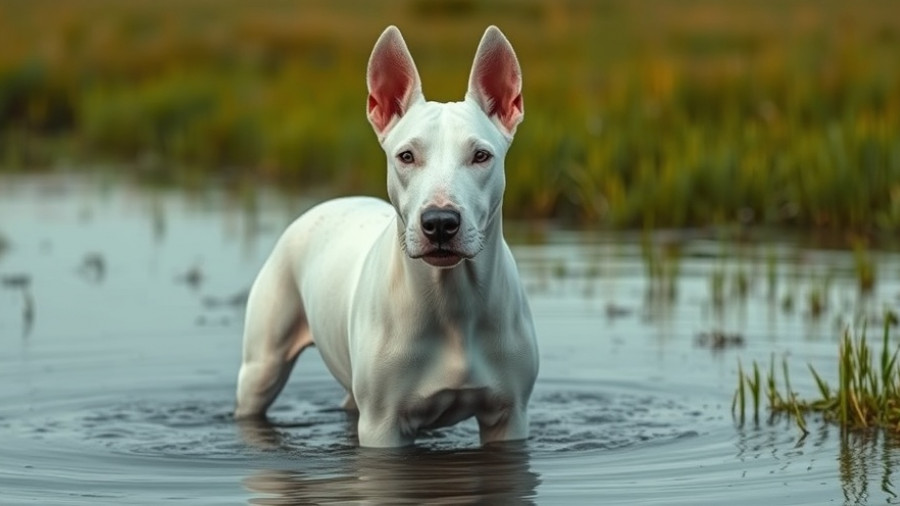
Understanding the Trooper Case: A Look at the Facts and Implications
The recent decision to drop charges against Giovanni Garcia, the former owner of Trooper the dog, has left many puzzled and emotional. This case, which gained national attention after Trooper was found abandoned during Hurricane Milton, raises significant questions around accountability and animal welfare. While the Hillsborough State Attorney's Office cited insufficient evidence to proceed with the charges of aggravated animal cruelty, the story sheds light on both the legal implications of the case and the broader societal changes it has inspired.
In 'Charges dropped in Trooper the dog case,' the discussion dives into the complexities surrounding animal welfare laws, prompting deeper analysis on our end.
A Dog's Journey from Abandonment to Advocacy
Trooper became a well-known figure in Florida after he was discovered tied to a fence on the side of Interstate 75. The sight of a vulnerable animal stranded during a natural disaster sparked widespread outrage across social media, prompting a deeper examination of animal rights laws in Florida. Following Trooper’s rescue, discussions around provisions for animals during emergencies rose to the forefront.
Why Charges Were Dropped: The Legal Perspective
According to the State Attorney's Office, the evidence strongly indicated that Trooper's abandoned state may not have resulted from an intentional act of cruelty. Testimonies from Garcia and his mother pointed to a chaotic evacuation process during Hurricane Milton where Trooper wiggled free of his collar, leading to his abandonment. Lawyer Anthony Rickman noted that while there may have been negligence involved, the absence of evidence proving intent meant that criminal prosecution could not proceed. The ethical considerations around such negligence remain a gray area in the law, prompting conversations about the necessity of clearer guidelines in similar circumstances.
The Emotional Impact: Public Sentiment and Backlash
Despite the legal outcome, one cannot overlook the emotional impact the case has had on the community. Trooper's plight resonated with many animal lovers who rallied for stronger protections and advocacy against animal cruelty. The significant backlash following the initial reports of the case indicates a shift in public sentiment; people are increasingly advocating for stricter laws to ensure the safety of animals, especially during natural disasters.
Legislative Changes: The Rise of Trooper's Law
One positive outcome emerging from this case is "Trooper's Law," which makes it a felony to abandon a restrained animal during a natural disaster. This landmark legislation is a crucial step in the right direction, aiming to prevent future tragedies similar to Trooper's abandonment by legally holding pet owners accountable in crisis situations. It reflects a growing recognition that animals deserve protections, particularly in times of environmental distress.
Implications for Animal Welfare in Florida
The Trooper case underscores the need for continuous discussions about animal welfare laws in Florida. As more individuals recognize the importance of animals in their lives, there is an unmistakable push toward legislative reform. This incident acts as a wakeup call for lawmakers to revisit existing laws and create robust frameworks that prevent animal cruelty and abandonment.
Community Response and Future Steps
The uproar surrounding the Trooper case has united animal rights activists, advocacy groups, and residents, each playing a part in spreading awareness about animal welfare and legislative reform. Community conversations around this topic are increasingly important as they empower individuals to take action, whether through advocating for new laws or participating in volunteer efforts for local shelters and rescue groups.
Concluding Thoughts: A Call to Action for Animal Advocacy
While Giovanni Garcia may have escaped criminal penalties, the gravity of this case remains significant for Florida's animal rights landscape. Those interested in animal advocacy should consider supporting local animal shelters or initiatives that focus on animal rights and welfare reforms. Change starts at the community level, and each action contributes towards making a difference.
 Add Row
Add Row  Add
Add 




Write A Comment